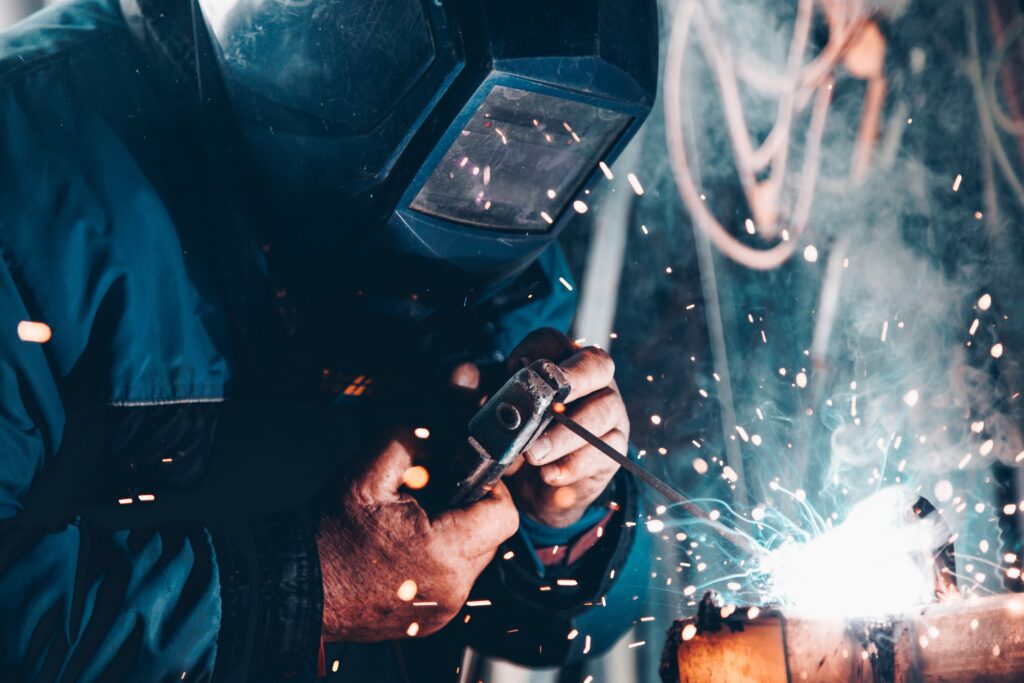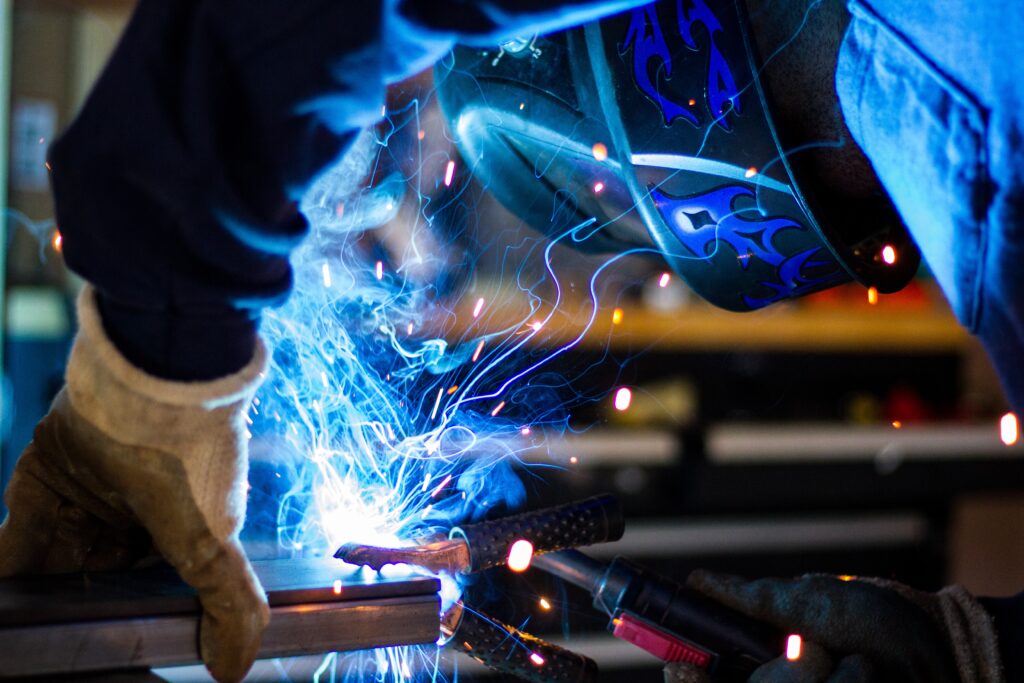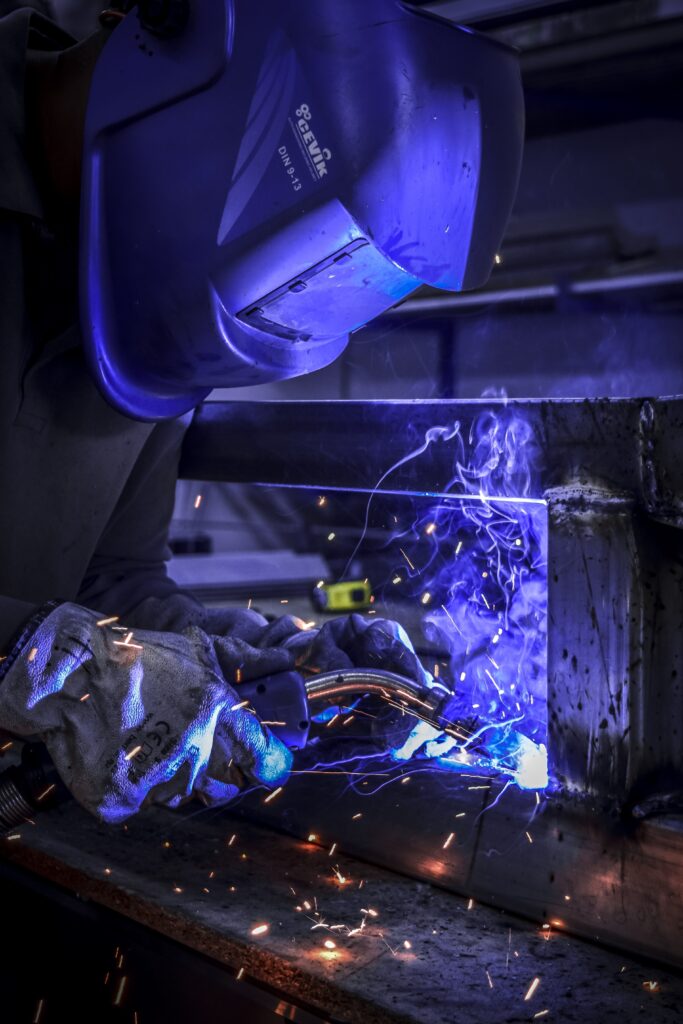Imagine having the opportunity to embark on an empowering journey to become a skilled welder, despite having zero experience. “How Do You Become A Welder With No Experience?” is an enlightening read designed just for you, to kickstart your dramatic transformation from an amateur to a professional. This comprehensive guide illuminates the path to welding, breaks down the learning process, and deciphers the job requisites, all while ensuring your journey requires no initial experience. So, prepare yourself to usher into a rewarding career full of potential in the captivating world of welding!

Understanding the Career
The welding trade is a critical part of several industries including construction, manufacturing, shipbuilding, and automotive. But what exactly does it mean to be a welder, and is it the right career path for you? In this article, we are going to dive deep into everything you need to know about welding.
What is Welding?
Welding is a fabrication process that involves joining two or more parts together by melting them at high temperatures and then allowing them to cool and solidify, creating a strong and durable joint. This process can be used to join a variety of materials, including metals and thermoplastics.
Types of Welding
There are several types of welding that a welder might specialize in. These include Gas Tungsten Arc Welding (GTAW), Shielded Metal Arc Welding (SMAW), Flux-Cored Arc Welding (FCAW), and Gas Metal Arc Welding (GMAW). Each type of welding has different strengths and is suited to different tasks.
Responsibilities and Duties of a Welder
As a welder, your responsibilities and duties will include reading and interpreting blueprints, measuring and cutting materials to be welded, operating welding tools and machinery, and maintaining a safe and clean work environment, among other tasks.
Career Prospects for Welders
As far as career prospects go, the welding industry is certainly a promising one. Due to the wide range of industries that require welding and the diversity of specialization, welders can find work in several different sectors, from construction to the automotive industry, and much more.
Skills Needed to Become a Welder
Becoming a competent and efficient welder requires a unique blend of skills. Let’s take a look at some of the key skills that you will need to develop on your journey to becoming a welder.
Physical Strength and Stamina
Welding often involves lifting heavy equipment and staying in uncomfortable positions for extended periods. Hence, physical strength and stamina are crucial for a successful welding career.
Attention to Detail
Precision is key in welding, and a good welder must have a keen eye for detail. This is essential to ensure that all parts are properly aligned and welded together precisely.
Technical Aptitude
As a welder, you will be expected to work with a variety of tools and machinery. Having good technical aptitude will allow you to understand and operate these tools effectively.
Mathematical Skills
Welding often involves making accurate measurements and calculations. Therefore, good mathematical skills are a necessity in this trade.
Problem-Solving Abilities
Lastly, problem-solving abilities are crucial in welding. You will often be expected to find solutions to complex problems and make quick decisions under pressure.

Educational Requirements
Just like any trade career, a solid education foundation is important for a career in welding.
High School Diploma or GED
To be eligible for most welding programs, you will firstly need a high school diploma or an equivalent GED certification.
Understanding of Welding Coursework
Before you can start training as a professional welder, you will need to have a basic understanding of the principles of welding, which can typically be acquired through high school coursework or other foundational education programs.
Vocational School for Welding
Vocational schools offer more specialised and practical training, which is often required to gain entry-level positions in the welding industry.
Apprenticeship Opportunities
Apprenticeships provide a great way to gain hands-on experience while continuing your education. They usually last for several years and combine both classroom study and practical training.
Types of Welding Training Programs
There are a variety of training programs for those who wish to become a professional welder.
Overview of Training Programs
Training programs vary in their specificity and duration. Some focus on broad welding skills, while others may specialise in a specific type of welding.
Choosing the Right Program for You
When choosing a welding program, it’s crucial to consider not only your career goals, but also your available time, financial resources, and current skills.
Costs of Welding Programs
The cost of a welding program can vary widely depending on the school, the length of the program, and the materials needed.
Program Duration
Program duration can range from a few weeks for a basic course to several years for more advanced training and apprenticeships.

Acquiring Welding Certifications
Understanding the Importance of Certification
Certification is an important aspect of the welding profession. It provides employers with a guarantee of your competence and skills.
Types of Welding Certifications
There are several types of certifications, and each one validates a different set of skills and knowledge. These include the Certified Welder (CW), Certified Welding Inspector (CWI), and Certified Welding Engineer (CWE) certifications.
Requirements for Certification
To gain certification, you will typically need to pass a test which may involve both a written component and a practical examination of your welding skills.
Duration and Costs for Certifications
The duration and costs for certifications can vary. Some can be completed in a few months, while others may take years. The costs can also range widely depending on the certification type.
Apprenticeship Programs
Introduction to Welding Apprenticeships
Apprenticeships provide a unique opportunity to learn the trade while also earning a wage. During an apprentice, you’ll combine classroom learning with on-the-job training.
How to Find an Apprenticeship Program
Finding an apprenticeship program can often be achieved through local vocational schools, trade organizations, or even unions.
Benefits of an Apprenticeship Program
Apprenticeships offer numerous benefits including hands-on training, income during your training period, and often leads to employment upon completion.
Gaining Practical Experience
Importance of Hands-on Training
Hands-on experience is invaluable in welding. It provides you with the chance to apply what you’ve learned in a practical setting and develop confidence in your abilities.
Working with Experienced Welders
Working alongside experienced welders provides you with a unique opportunity to learn from the best. You can pick up valuable tips and insights that can help boost your skill level.
Practicing Welding Skills
Just like any other profession, practice makes perfect in welding. The more time you spend welding, the more competent and efficient you will become.
Job Hunting as a Newly Qualified Welder
Writing an Effective Resume
A well-written resume can greatly increase your chances of landing a welding job. Be sure to highlight your training, certifications, and any relevant experience you have.
Building a Portfolio
Building a portfolio of your work is another effective way to showcase your skills to potential employers. It can include photographs of your works or references from previous jobs or apprenticeships.
Networking for Job Opportunities
Networking plays a vital role in job hunting. Joining professional organizations and attending events can introduce you to other professionals and potential employers in your industry.
Interview Preparation
Before the interview, research the company and rehearse answers to common interview questions. Your preparation would show the employer your passion for the company and for the welding profession.
Continuing Education and Skill Improvement
Importance of Continuous Learning
The welding industry is constantly evolving, and staying updated with the latest techniques and technologies is essential for remaining competitive in the industry.
Attending Workshops and Seminars
Workshops and seminars provide great opportunities for skill improvement and networking. They expose you to fresh perspectives and up-to-date industry developments.
Staying Updated with Industry Trends
Stay updated with industry trends and innovations by reading trade magazines, attending industry events, or participating in online forums.
Health and Safety Precautions for Welders
Importance of Safety in Welding
Safety is paramount in welding due to the inherent risks associated with the job, such as exposure to harmful fumes, electrical shocks, fires, and burns.
Common Safety Gear for Welders
To protect yourself from these risks, you will need to equip yourself with safety gear such as a welding helmet, gloves, and protective clothing.
Workplace Hazards and Precautions
Being aware of potential hazards in your workplace and taking necessary precautions can significantly reduce your risk of injury. Regular safety training and adherence to safety rules is a must in this profession.
To sum up, while the road to becoming a welder may be challenging and require a lot of hard work, it can also be a very rewarding career path. With the right education, training, and attitude, you can enter this exciting profession and contribute to the creation of numerous important structures and technologies. Remember, the key to success in welding, as in any profession, is a willingness to learn and a commitment to continuous improvement.
